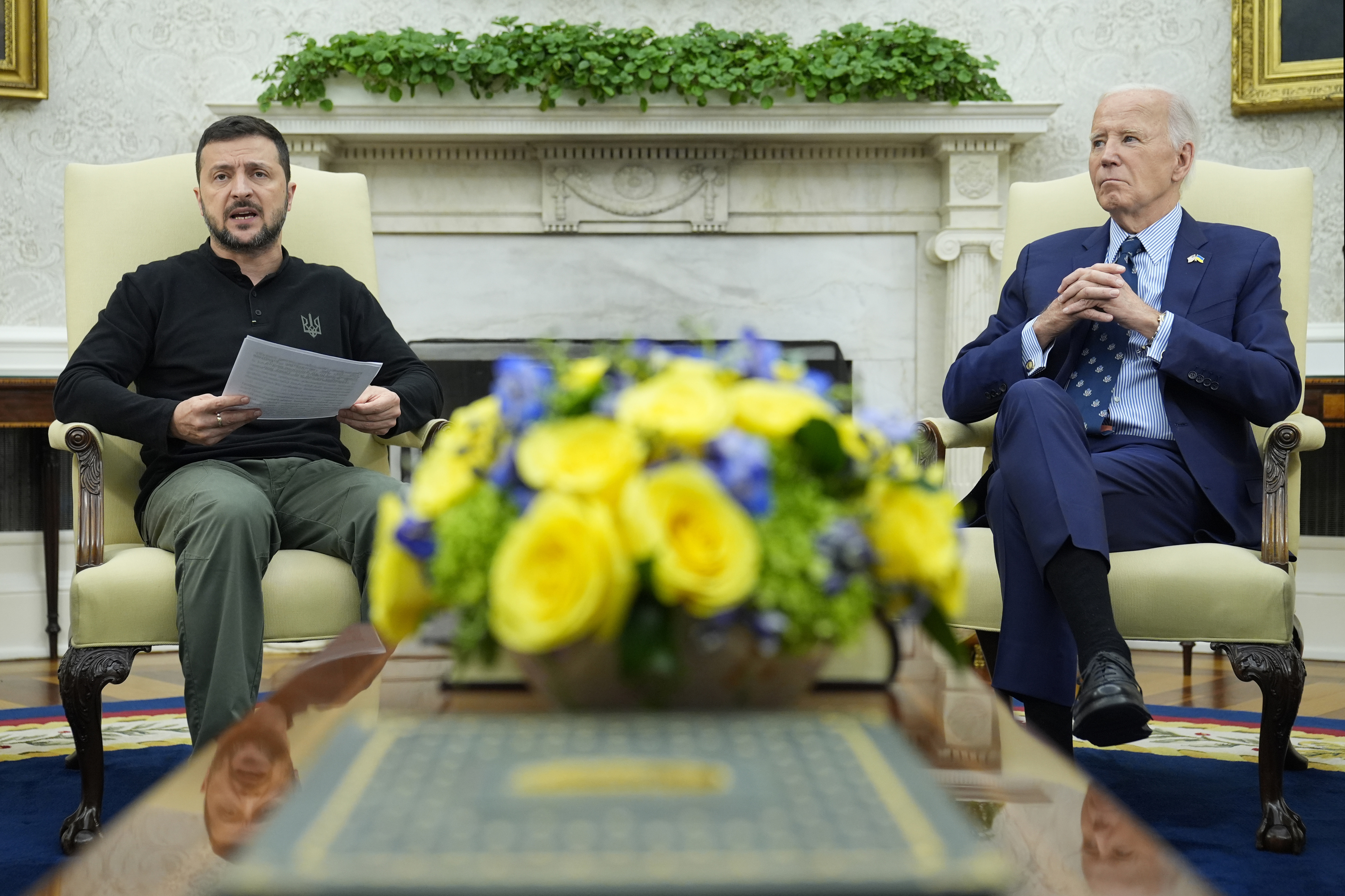"Russia has unquestionably lost. But that doesn't mean Ukraine has won." The statement comes from the founder of the Silverado Political Accelerator think tank and cyber warfare expert, Dimitri Alperovitch, in an interview with this newspaper. But it also reflects the atmosphere in which the meeting between the President of Ukraine and the President of the United States, Joe Biden, took place at the White House on Thursday. Russia has not achieved any of the objectives it set when launching the war and, in Alperovitch's words, "is in a worse economic, demographic, strategic, geopolitical situation than it was in February 2022," when it attempted to conquer the country in what was expected to be a three-day war. However, its forces still occupy 20% of Ukraine and continue to advance.
So when Biden greeted Zelensky in the Oval Office with a solemn "Russia will not prevail. Ukraine will prevail, and we'll continue to stand by you every step of the way,," it was not very clear what he meant. This phrase is the mantra that the United States and Europe have been repeating since Russian tanks stopped on the outskirts of Kyiv, but it lacks a key element: what does "winning" mean? For Zelensky, at the very least, it means that Russia withdraws from all the territory it has occupied since 2014 when it launched the first invasion of Ukraine, compensation for the war's destruction, and a trial against those responsible for crimes against humanity. But that victory will take years. Vice President and White House candidate Kamala Harris, who was scheduled to have her seventh meeting with Zelensky yesterday, has repeatedly stated, "we will be with him for as long as it takes."
However, Thursday's meeting was also marked by a new crisis within the Ukraine war: the total and irreparable fracture of consensus in supporting the Kiev government against Russian aggression. The ideas put forward by the Republican Party's vice-presidential candidate, JD Vance, and by the presidential candidate himself, Donald Trump, in recent days are based on sanctioning Russia's occupation of 20% of Ukraine it has conquered and blocking that country's entry into NATO, and if possible, into the EU. The House Speaker, 'Trumpist' Mike Johnson, demanded on Wednesday the immediate dismissal of the Ukrainian ambassador in Washington, Oksana Makarova, a professional diplomat who has effectively defended her country's interests in the US during the Russian invasion.
So Harris, who had her seventh meeting with Zelensky on Thursday and is a White House candidate, entered the dispute. "These proposals are the same of those of [President Vladimir] Putin. And let us be clear, they are not proposals for peace. Instead, they are proposals for surrender," she said. Although she did not mention any names and used the ambiguous "there are some in my country" to refer to her rivals, it was clear that Harris was referring to Trump and Vance, summarizing their ideas in one sentence: "They demand that Ukraine give up a large part of its sovereign territory, that Ukraine accept neutrality, and that Ukraine give up security relations with other nations."
With the lines firmly drawn in the United States, between Republicans aligned with Putin and Democrats with Zelensky, the question remains, pending the outcome of the November 5 elections, of how the war will evolve. Therefore, the President of Ukraine presented Biden with a plan designed by his country to end the conflict, presumably with increased Western military aid and a more aggressive military strategy, including US permission for Kiev to use the Storm Shadow, SCALP-EG, and ATACMS land-to-land missiles on Russian territory. The first two are manufactured by Britain and France (in reality, they are the same weapon system, just with a different name in each country), but they have American components. The ATACMS are manufactured by the United States.
Within the staged friendship profession in the Oval Office, the issue was not even mentioned. Zelensky, dressed in his usual green sweater, and Biden, reading, as is customary for him, from cards he held in his hand, were cordial but serious. The US President had announced shortly before that he would accelerate the delivery of military equipment to Ukraine during the remainder of his term, up to $7.9 billion (just over 7 billion euros). He also revealed that the US will provide Kiev with AGM-154 glide bombs, which have a range of 120 kilometers.
But that is not what Zelensky wants with the missiles. Nor with the F-16 fighter-bombers provided by several European countries, but again, of American manufacture, which is permission to use them in Russian territory. "I don't see authorization for using the F-16s in Russian airspace in the short or medium term," Alperovitch estimated yesterday. Before all that happens, there will be elections. And in them, the future of Ukraine will be decided.
